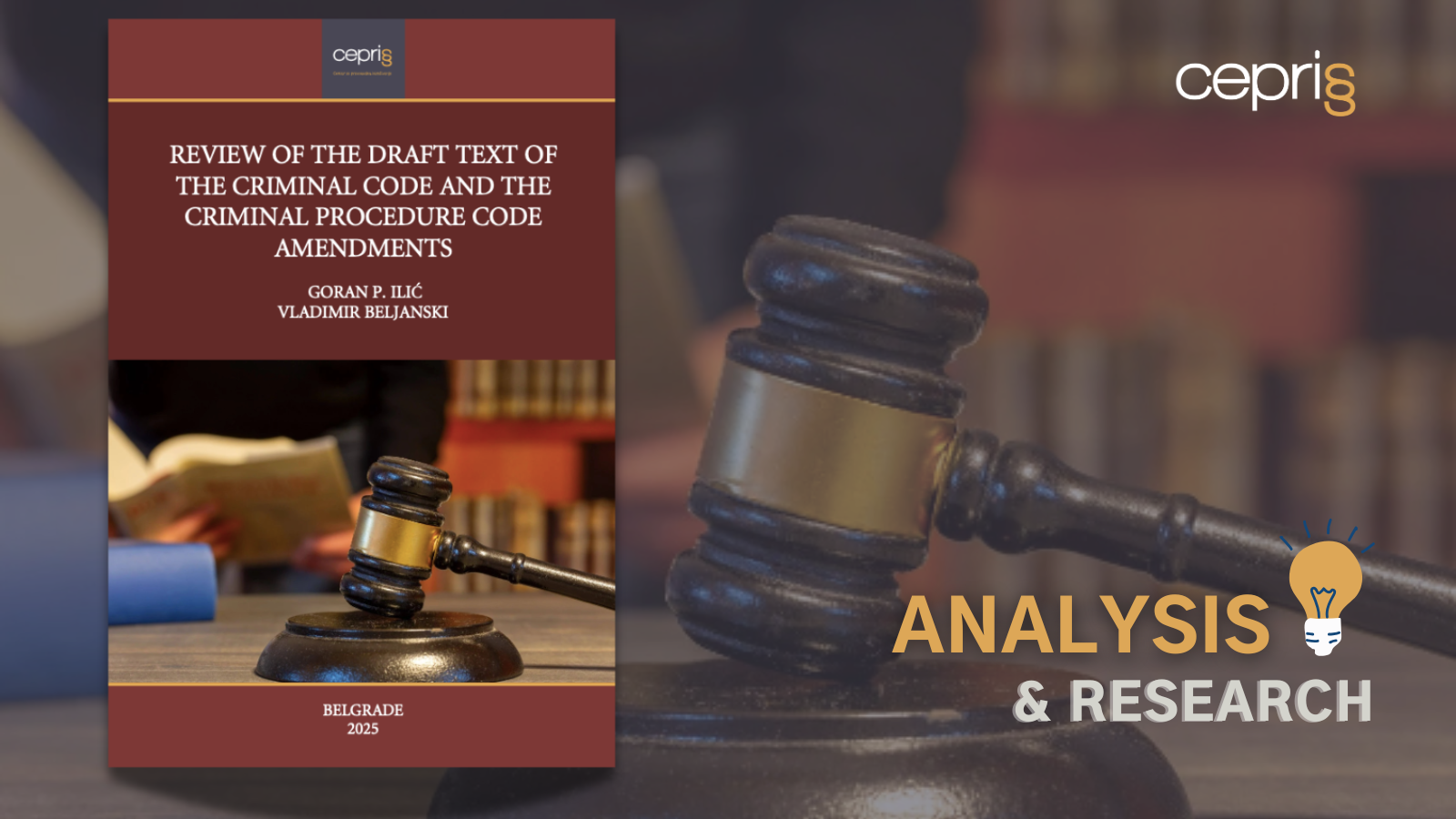
Photo:CEPRIS
After the public debate on the amendments to the Criminal Code (CC) and the Criminal Procedure Code (CPC) was concluded, the Ministry of Justice announced on November 27 last year that the National Assembly had adopted certain amendments to the Criminal Code, while work on other amendments and supplements would continue.
The adopted changes toughened prison sentences for serious offenses against public traffic safety and introduced three new criminal offenses penalizing attacks on healthcare, education and social workers.
Two days later, following consultations with the European Commission, the Ministry of Justice announced that the public debate on the proposed draft laws would continue in 2025, based on suggestions from the domestic expert community.
In view of these developments, CEPRIS conducted an analysis of the draft texts of the amendments to the CC and CPC.
Through the analysis of both documents, the authors of the Review raised concerns about the increasingly common practice of amending criminal law provisions without meaningful public debate and with minimal analysis of potential consequences. They concluded that such a practice indisputably leads to the degradation of the legal system and undermines citizens’ trust in institutions.
Regarding the substance of the proposed amendments to both codes, special attention was drawn to the risks of violating certain constitutional principles and European standards, as well as to the dangers of populist legislation serving short-term political needs, contrary to the principles of the rule of law and legal certainty.
For example, with respect to the amendments to the Criminal Code, the concept of self-defense has been more broadly defined, while the expansion of the prohibition of conditional release reflects a continuing trend of tightening penal policy. This tendency is further reflected in the domain of crimes against sexual freedom and life, due to the wider application of life imprisonment and exemption from the statute of limitations. At the same time, the proposed abolition of the criminal offense of extortion of confession causes serious concern.
On the other hand, the work on the amendments to the CPC is primarily characterized by the arbitrary interpretation of constitutionality by members of the Working Group, with insufficient grounding in the practice of domestic courts and the case law of the European Court of Human Rights. This is particularly noticeable in the interpretation of the right to a fair trial, as well as in the attempt to reintroduce certain legal institutions from previous legislative texts, which had been criticized in procedural theory and had caused problems in interpretation and application in practice.
Ostavite komentar